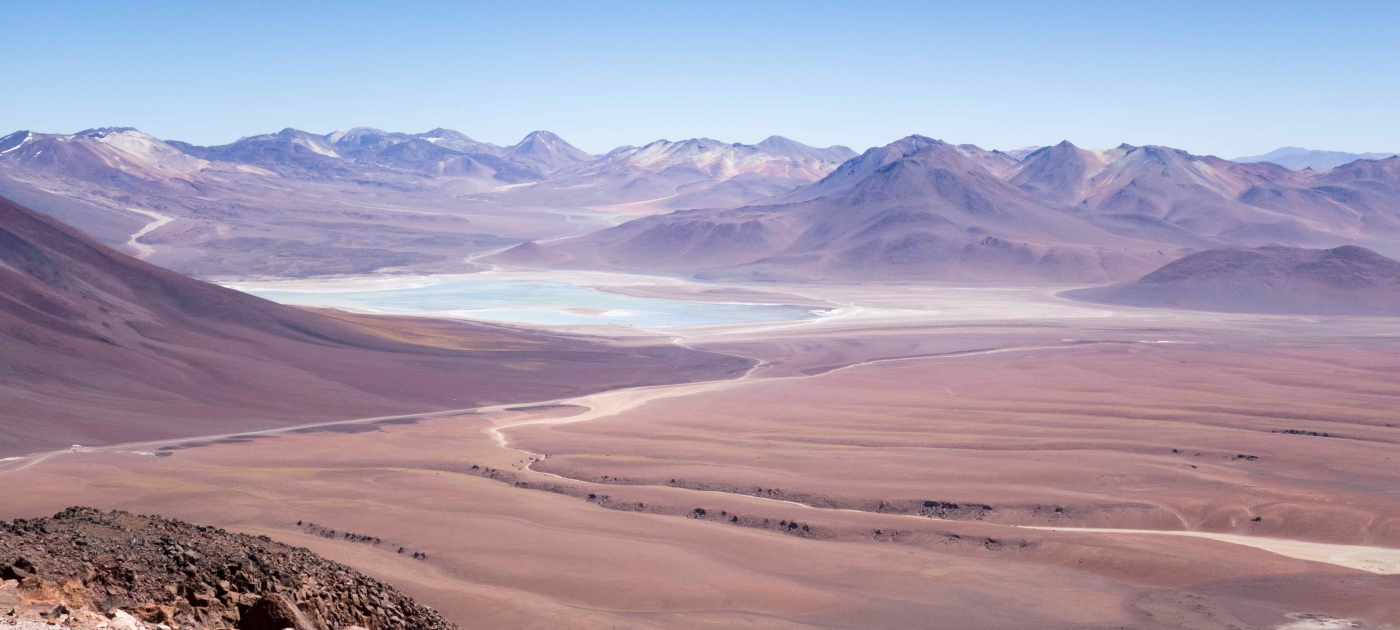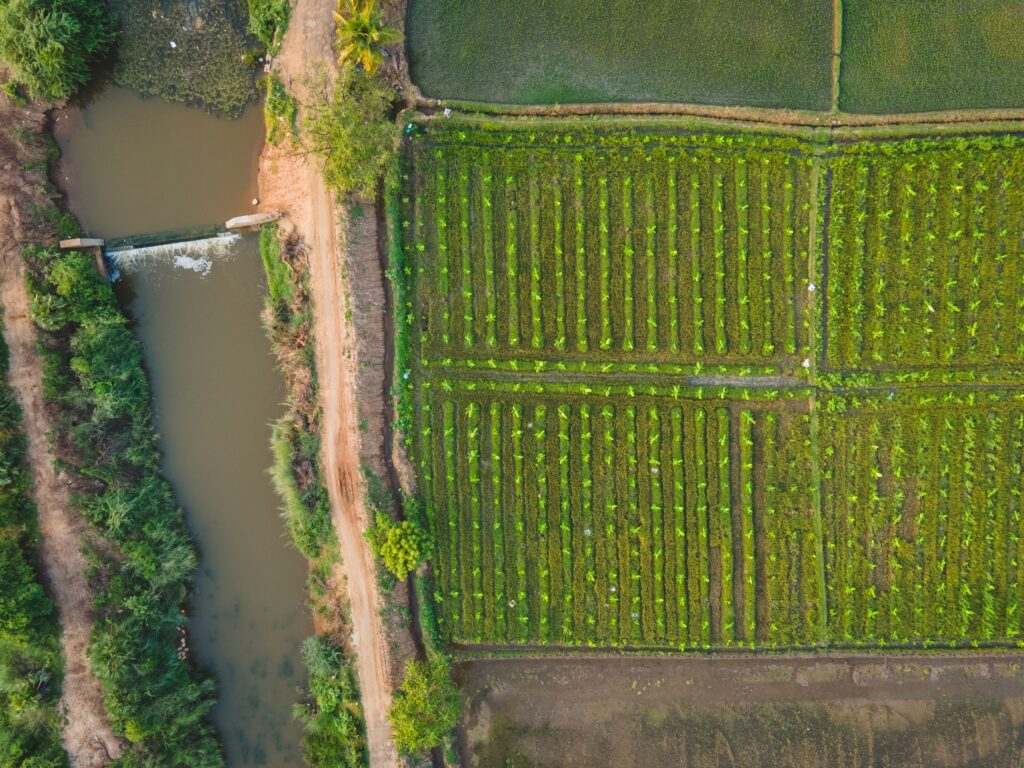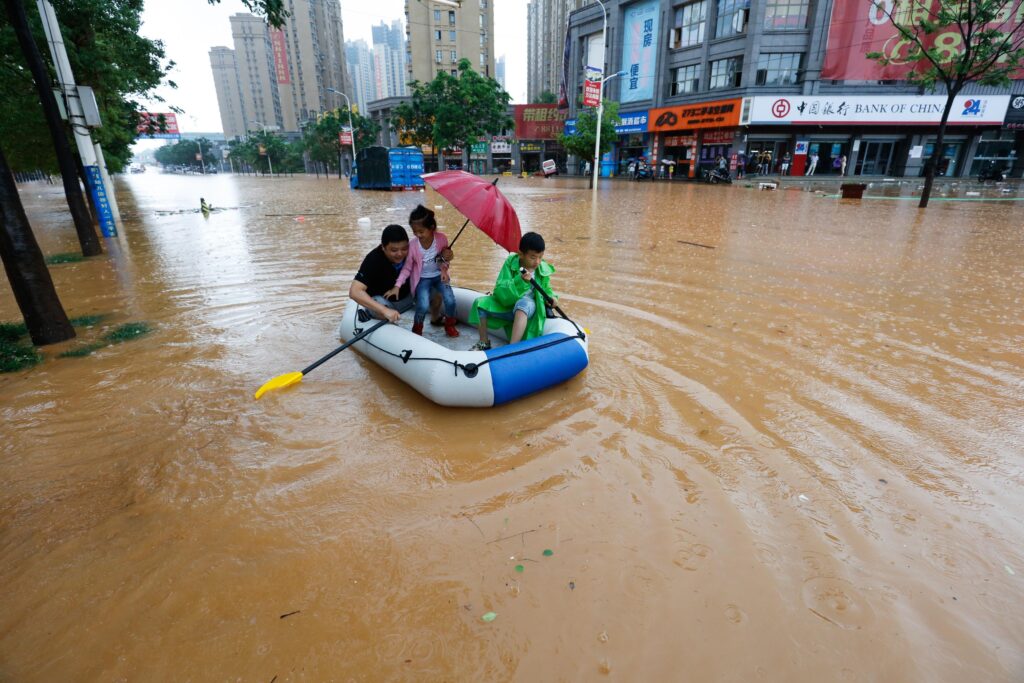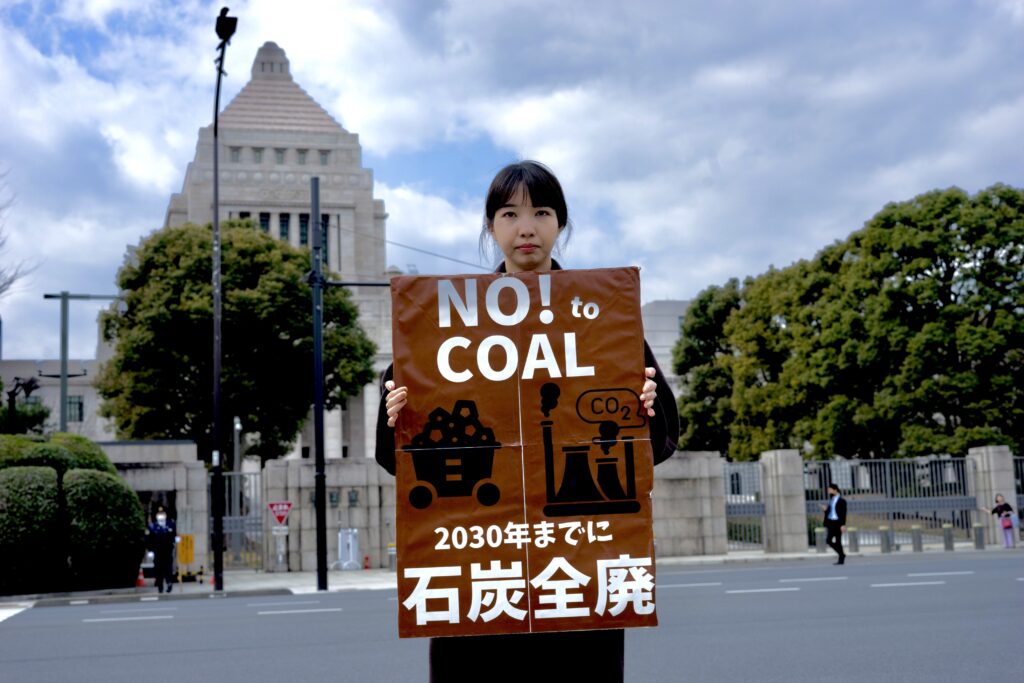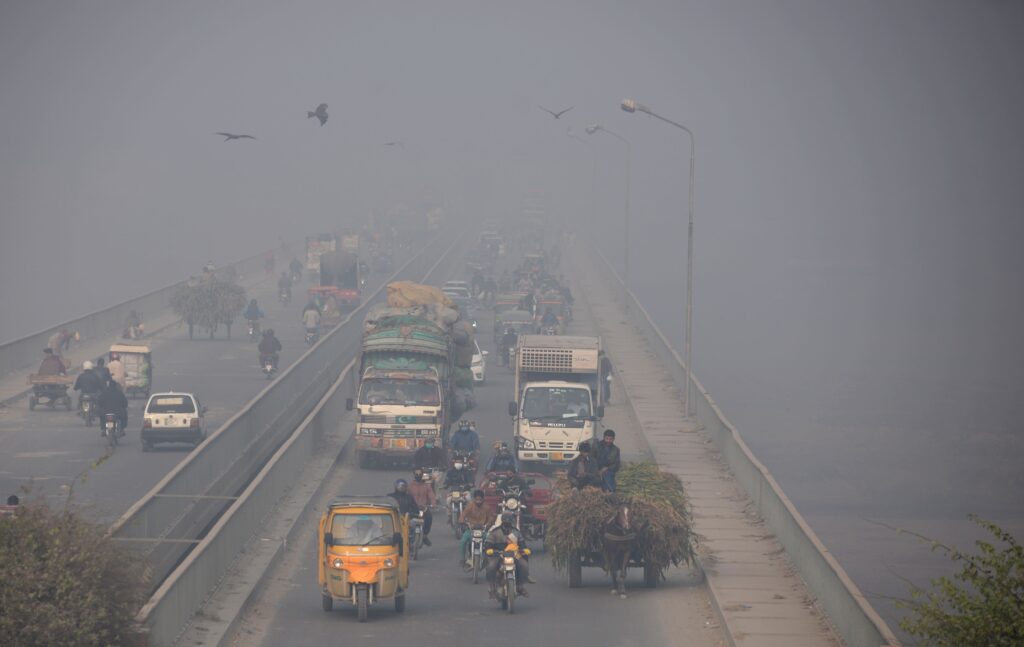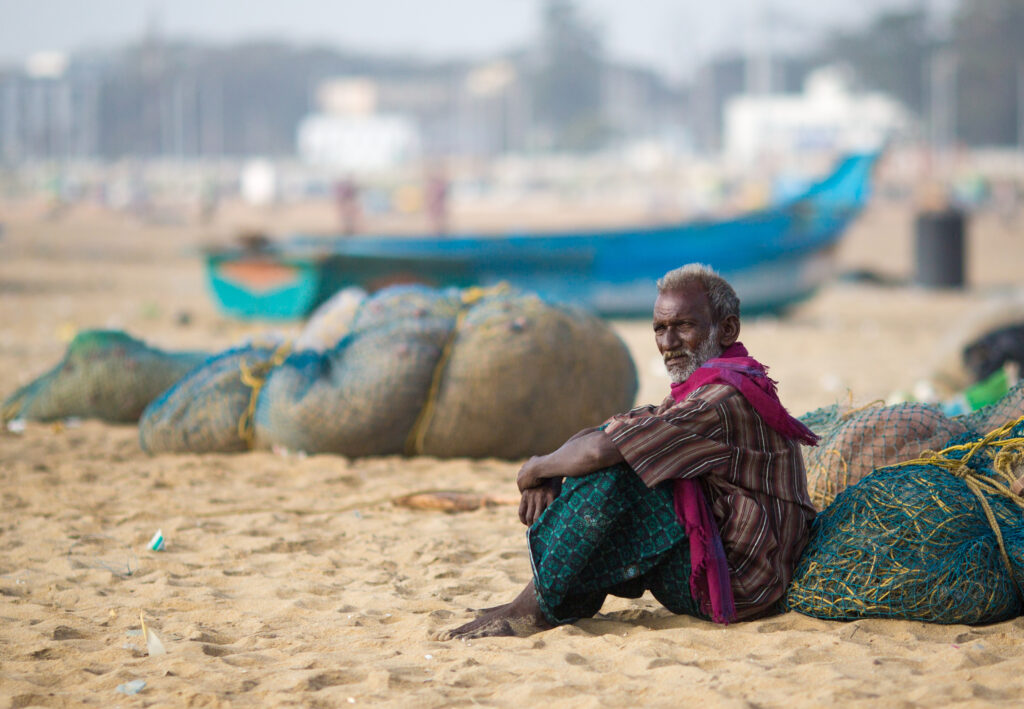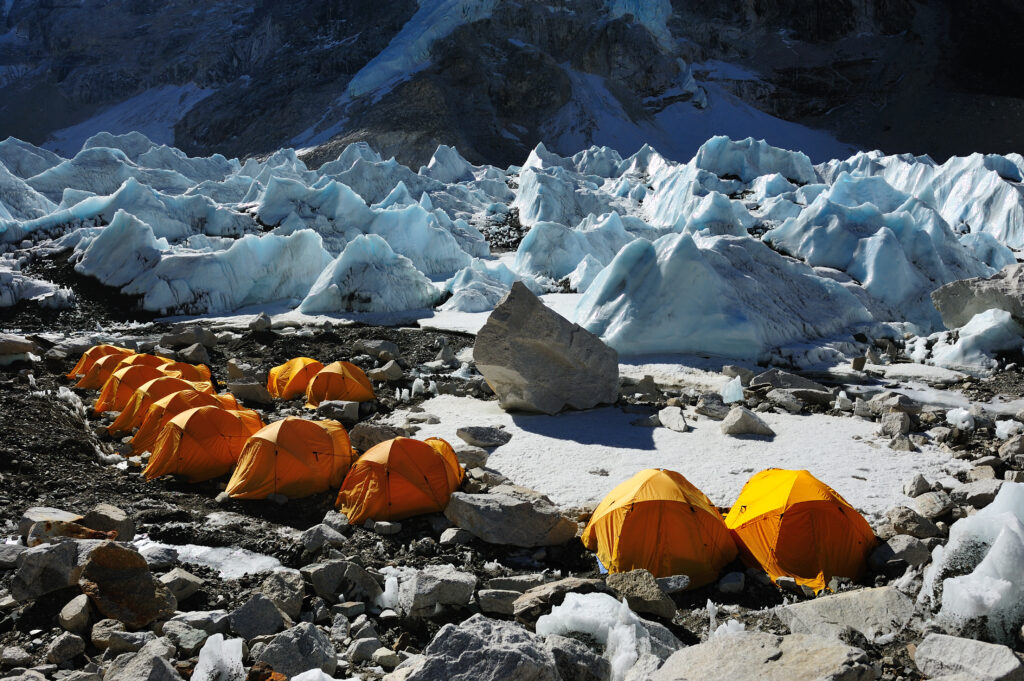Saudi Arabia’s environmental issues put the country at a crossroads. As the world’s largest oil exporter, the kingdom’s prosperity is tied to the extraction and sale of petroleum products.
However, the environmental and climate impacts of such economic reliance on oil production are becoming increasingly evident. This is further exacerbated by the country’s high income disparity and poverty rates, threatening not only the well-being of its citizens but also the country’s future economic prosperity.
What Are the Biggest Environmental Issues in Saudi Arabia?
Saudi Arabia faces a unique set of environmental challenges primarily due to its rapid economic development, energy consumption and unique climate. The following are the biggest environmental issues in Saudi Arabia:
Desertification
Saudi Arabia is predominantly a desert region (98% of the country’s land area) and faces acute water scarcity issues, with desertification exacerbating the situation. Saudi Arabia’s rapid desertification is attributed to a combination of harsh climatic conditions, such as low rainfall and high temperatures and human activities, including overgrazing, deforestation and unsustainable water management practices.
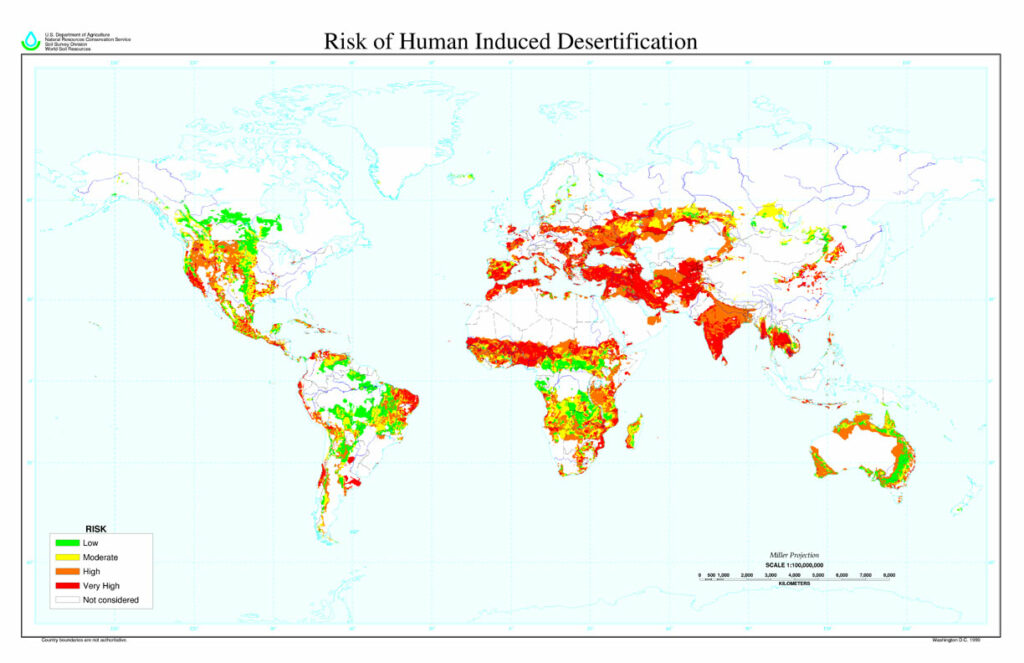
The rate of desertification has led to a critical depletion of already scarce freshwater resources. Saudi Arabia is one of the world’s largest consumers of water per capita, despite being in one of the driest regions on Earth. The country relies heavily on non-renewable groundwater and desalination plants to meet its water needs. This reliance on finite water sources is unsustainable, and desertification further threatens the availability of these resources by degrading the land’s ability to capture and retain moisture, leading to a decrease in groundwater recharge rates.
The impact of desertification in Saudi Arabia affects millions of people, particularly those in rural and agricultural communities. As arable land diminishes, agricultural productivity declines, threatening food security, rural communities’ livelihoods and water availability for drinking and industry. As water access declines, experts predict an increase in poverty and forced migration as communities search for more hospitable environments.
Rising Temperatures
Like many regions around the world, extreme heat is a major environmental issue for Saudi Arabia. The country already has temperatures well above the global average, but by 2050, climate change in Saudi Arabia will push temperatures up by around 4°C. This will put large portions of the country in high-risk heat conditions for several months of the year by 2030, with the situation spreading all over the country by 2100.
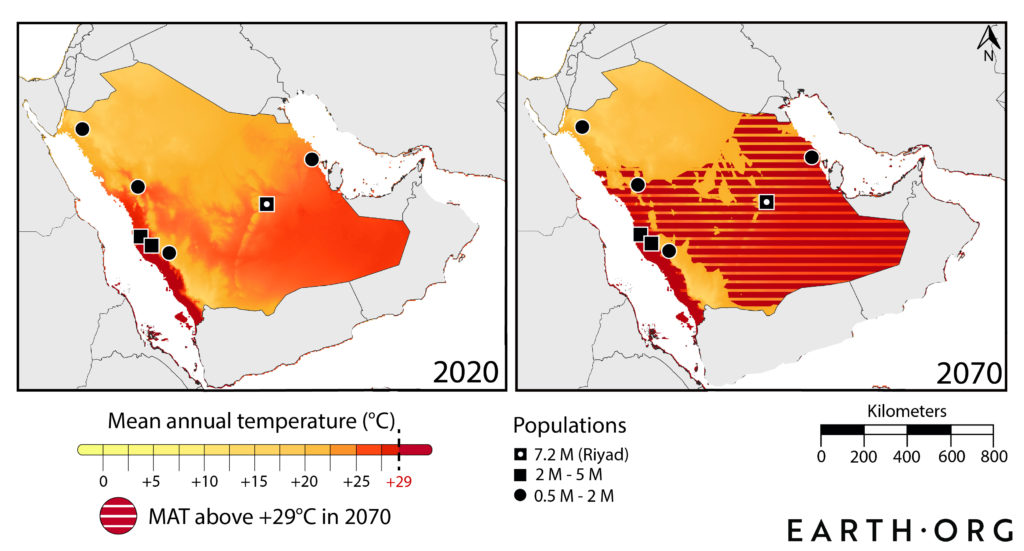
This will create hazardous health conditions for the country’s population and potentially lead to large crop failures. Additionally, it will lead to increasing ocean temperatures, which will impact the country’s fisheries, further hampering its food production capabilities.
Greenhouse Gas Emissions and Air Pollution in Saudi Arabia
Air pollution in Saudi Arabia is a critical environmental issue primarily caused by carbon emissions from industrial activities, vehicle exhaust and dust storms. Industrial operations, especially those related to oil extraction and refining, and the rapidly growing number of vehicles on the roads release a variety of pollutants.
The World Health Organisation rates Saudi Arabia’s air as unsafe, and the country has one of the highest concentrations of air particulate matter in the Middle East. At current rates, environmental pollution is estimated to lead to over 8,000 deaths annually. This doesn’t count non-life-threatening chronic issues, such as asthma, which are much higher.
Saudi Aramco and Environmental Issues
One of the leading contributors to Saudi Arabia’s environmental issues is its national oil company, Saudi Aramco. Saudi Aramco is the world’s largest oil and gas company and is pivotal in the global energy sector. As a major player in the fossil fuel industry, Aramco’s operations contribute significantly to greenhouse gas emissions, which are a leading cause of global warming. It’s estimated that the company has accounted for 4% of global greenhouse gas emissions since 1965 – more than many countries.
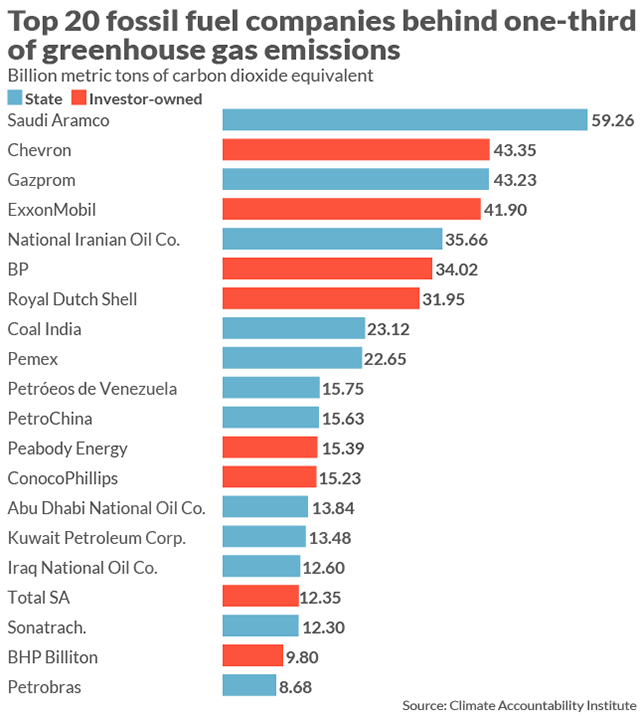
Many global experts and governments have tried to work with the company to scale down its emissions and reduce future investment in oil and gas. However, Saudi Aramco is continuing its exploration of new oil and gas reserves while ramping up production throughout the decade. This will have a significant global impact and be a roadblock for the global push to keep warming below 1.5°C.
The Saudi Green Initiative: Not Enough
With these concerns in mind, Saudi Arabia is working to improve its approach to climate change mitigation and adaptation and sustainable development. Programs like the Saudi Green Initiative aim to reduce carbon emissions and diversify the economy away from oil. The Green Initiative targets sourcing 50% of the country’s energy from renewables by 2030 and the country being net zero by 2060. However, this does not consider oil and gas exports, which will continue to be a global concern.
Renewable Energy Goals
While these efforts are positive, they are not nearly aggressive enough. Climate Action Tracker rates Saudi Arabia’s climate change policy as “critically insufficient“, and little progress has been made towards its renewable energy goals. The country is not working to phase out fossil fuels but is promoting largely unproven solutions like carbon capture instead.
Saudi Arabia must enhance its commitment to green technologies and sustainable practices to align with global climate goals and ensure the kingdom’s environmental protection and economic sustainability and preserve natural resources. Furthermore, the country needs to actively follow through on its pledges. The success of these efforts will not only shape the country’s future but also contribute to global environmental health.
Eric Koons
Writer, United States
Eric is a passionate environmental advocate that believes renewable energy is a key piece in meeting the world’s growing energy demands. He received an environmental science degree from the University of California and has worked to promote environmentally and socially sustainable practices since. Eric has worked with leading environmental organisations, such as World Resources Institute and Hitachi ABB Power Grids.
Eric is a passionate environmental advocate that believes renewable energy is a key piece in meeting the world’s growing energy demands. He received an environmental science degree from the University of California and has worked to promote environmentally and socially sustainable practices since. Eric has worked with leading environmental organisations, such as World Resources Institute and Hitachi ABB Power Grids.

